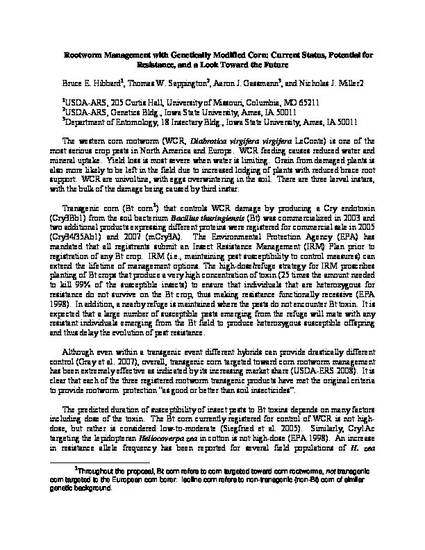
Presentation
Rootworm Management with Genetically Modified Corn: Current Status, Potential for Resistance, and a Look Toward the Future
Entomology Presentations, Posters and Proceedings
Document Type
Conference Proceeding
Disciplines
Conference
Proceedings of the 45th Annual Illinois Corn Breeders School
Publication Date
1-1-2009
Geolocation
(40.1164204, -88.24338290000003)
Abstract
The western corn rootworm (WCR, Diabrotica virgifera virgifera LeConte) is one of the most serious crop pests in North America and Europe. WCR feeding causes reduced water and mineral uptake. Yield loss is most severe when water is limiting. Grain from damaged plants is also more likely to be left in the field due to increased lodging of plants with reduced brace root support. WCR are univoltine, with eggs overwintering in the soil. There are three larval instars, with the bulk of the damage being caused by third instar.
Language
en
Citation Information
Bruce E. Hibbard, Thomas W. Sappington, Aaron J. Gassmann and Nicholas J. Miller. "Rootworm Management with Genetically Modified Corn: Current Status, Potential for Resistance, and a Look Toward the Future" Champaign, IL(2009) Available at: http://works.bepress.com/aaron_gassmann/55/

This proceeding is from Proceedings of the 45th Annual Illinois Corn Breeders School (2009): 157.